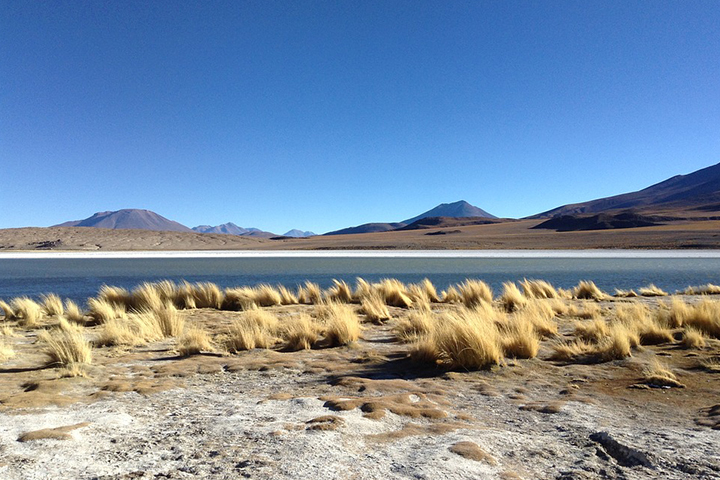Integrating Physical and Social Sciences to Develop Sustainable Water Resource Policy in Bolivia
Integrating Physical and Social Sciences to Develop Sustainable Water Resource Policy in Bolivia
Integrating Physical and Social Sciences to Develop Sustainable Water Resource Policy in Bolivia
Program: Environmental Sustainability Multidisciplinary Research Team (ESMRT)
All Environmental Sustainability Multidisciplinary Research Team (ESMRT) projects »

Investigators
Christopher Poulsen - College of Literature, Science, & the Arts
Todd Ehlers - College of Literature, Science, & the Arts
Maria Carmen Lemos - School for Environment and Sustainability
Allison Steiner - College of Engineering
Project Summary
In Bolivia and other parts of South America, water availability and quality are major problems; additional stress on this resource from climate change and population growth is likely to exacerbate existing water-related issues and create new water-related crises and confrontations. To mitigate and adapt to future water-related issues that will arise from climate change, policymakers must develop and implement sustainable water resource strategies that address future global change.
This multidisciplinary research team worked collaboratively to understand and overcome challenges associated with developing sustainable water resource policy, including:
- Accurately predicting regional scale climate changes
- Estimating how these climate changes will affect watershed hydrology
- Using these predictions to create effective water policy given local social, economic, political and cultural conditions
The team’s long-term objective is to develop a long-term water resource management strategy that can be implemented by local policymakers in Bolivia. Their initial work included developing a methodology for translating regional climate predictions into water resource predictions for use by policy-makers. They implemented a three-component research plan that integrated regional climate modeling over South America, catchment-scale hydrological modeling, and assessment of policymaking processes and cultures in Bolivia. This work produced the following outputs:
- Regional-scale predictions of climate and hydrological variables (rainfall, evaporation, surface flow) for future climate change scenarios over tropical South America using a state-of-the-science climate-land surface model
- Catchment-scale predictions of the impact of climate change on river discharge (water availability) and drainage basin hydrology
- Policy guidelines, tailored to Bolivia, for mitigating and/or adapting to changes in water resources due to future climate change.
This project received a $191,475 Environmental Sustainability Multidisciplinary Research Team Proposal Grant in 2008.